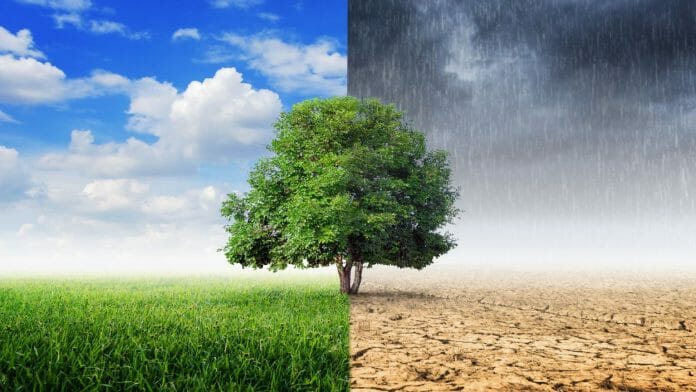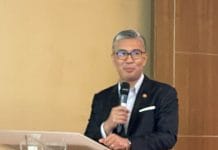As rising temperatures swell seas and threaten the Maldives’ corals, the archipelago pinned its hopes on securing climate resilience funding designed to help vulnerable nations.
But the country’s environment minister, speaking at UN climate talks dominated by manoeuvering over financing, slammed the “very minimal” pledges received so far from the pot of money set aside by rich countries.
“Our islands are eroding at an alarming rate,” said Aminath Shauna, at the COP27 climate meeting in Egypt.
“Every single island in the Maldives – freshwater (and) lands have been depleted and contaminated by saltwater intrusion,” she said of the Indian Ocean archipelago, AFP cited.
Experts warn that damage from a warming world is outpacing the funding for efforts to forestall catastrophes, with the United Nations estimating that actual needs are around five to 10 times greater than the finance provided.
As long-standing polluters, richer countries are under pressure to step up funding to vulnerable nations least responsible for planet-heating emissions and the consequent damages.
But even existing money is hard to access, according to the Maldives and a host of other vulnerable nations, who are often paying from their own budgets.
“Our ability to spend on education, health care, institution building, are increasingly becoming a challenge because every year is becoming a warm year, every year the rainy season is flooding even more islands than the year before,” Shauna told reporters on Saturday.
‘Huge reform’
Rising seas are accompanied by an increase in storms and tidal surges, leading to salt contamination of water and land that will make many atolls uninhabitable long before they are finally submerged.
The Maldives – which says it needs an estimated US$8.8 billion for coastal adaptation projects – has submitted proposals valued at US$500 million to the Green Climate Fund (GCF), one of the main avenues for climate finance.
But so far only two have been approved, drawing on a total of roughly US$50 million from the fund. The waiting time is on average four or five years, Shauna said.
One of the projects, approved in 2015 and currently in its final stages, was designed to secure freshwater for 105,000 people on outer islands, focusing on rainwater harvesting.
“But it’s taken so long, the ground realities have changed,” she told AFP.
Water supply became “such an urgent issue” that the government started developing desalination plants that now need to be integrated with the original project.
The funding process “needs a huge reform”, she added.
Global warming ‘precipice’
UN climate negotiations have been soured by the failure of wealthy nations to provide a pledged US$100 billion annually from 2020 to 2025.
OECD data shows such contributions reached US$83 billion in 2020, with just US$29 billion of that for adaptation.
But a report from Oxfam in October estimated the actual amount could be far lower than reported, while up to 70 per cent of the public finance portion of the climate funding is in the form of loans.
Extreme floods, crop-wilting heatwaves and droughts have lately lashed across the world, while rising inflation exacerbated by oil-rich Russia’s invasion of wheat-producer Ukraine has generated financial pressures for donor and developing nations alike.
Developing countries have their “backs against the wall” as interest rate hikes inflate the debt burden, Achim Steiner, head of the UN Development Programme, told AFP.
Not meeting the US$100 billion goal was a “grave error”, Steiner said, adding that funding – which includes loans, grants and private finance – should not be thought of as aid.
“We’re actually investing in the ability of a family of eight billion people not taking us over the precipice of global warming,” he said.
As delegates at the Egypt climate conference began a new round of talks last week to set funding targets beyond 2025, it was clear that patience was wearing thin.
One after other representatives from developing nations listed the hurdles, they had to jump over to meet stringent funding criteria.
Somalia’s representative said access to money “has become extremely complex”, while Mauritius decried “onerous requirements for establishing our vulnerability”. A representative of the GCF, present at the meeting, assured countries that efforts were underway to speed and simplify access to funds.









